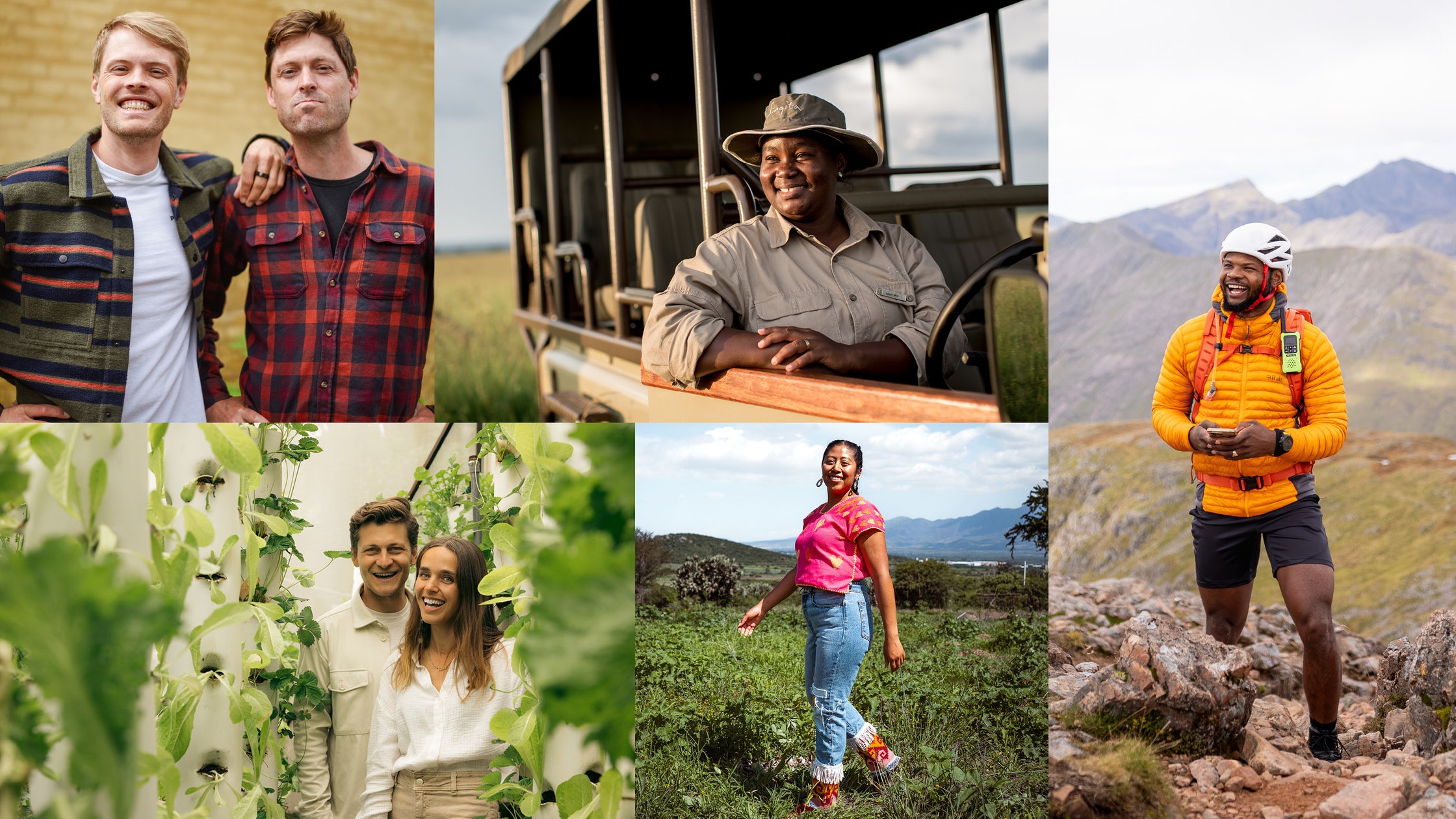Ethical Travel in 2024: Inspiring Stories for a Sustainable Future
We all love a holiday—but in 2024, the emerging challenge is finding the most ethical means to enjoy these experiences. With concerns about the environment and over-tourism on the rise, conscious travellers are looking for destinations that are kinder to the planet and its people. Now, more than ever, locations that promote sustainability, accessibility, and inclusivity are in the spotlight.
Numerous organizations strive to make a positive impact, showcasing how tourism can benefit the communities it engages with. At the forefront of these efforts are individuals whose passion for travel has translated into an urge to change the industry. From litter collectors in Copenhagen to safari guides in Tanzania, we highlight heroes in global tourism whose inspirational work paves the way for the future of travel.
The Game-Changing Guide
Mishi Mtili, Singita Grumeti, Tanzania
“Most guests don’t hide their surprise when they see me, and that means a lot.” Mishi Mtili is redefining roles as a female guide at Tanzania’s Singita Grumeti, renowned for its prime location for witnessing the great wildebeest migration. Beginning her career 16 years ago as a dishwasher at Singita, she relentlessly pursued opportunities for growth. Now, after an intense two-year training process, she is celebrated as one of Singita’s top field guides and aspires to empower more women to follow suit, including teaching guiding skills at college.
“I recently taught a class, and all the women were hiding at the back,” she shares. “I encouraged them to come forward. It’s about building confidence and communication skills while showcasing that female guides can perform just as well as their male counterparts.” Her biggest lesson has been the importance of authenticity: “It’s about showing your personality; about being true to who Mishi is.” Her love for the wilderness along the Grumeti River fuels her passion: “Being in quiet surroundings, pausing the engine, and helping guests meditate while appreciating nature transforms the experience—it’s therapy for both guests and me.”
The Waterborne Litter-Pickers
Oke Carstensen & Tobias Weber-Andersen, GreenKayak, Copenhagen
Less than 24 hours post-clean-up, Tobias Weber-Andersen observed new rubbish contaminating the areas he had just cleared. This spurred the creation of GreenKayak, a rental service that lends kayaks to the public with an eco-conscious twist: paddlers must collect waste from the waterways while they enjoy their outing. Fitted with litter pickers and buckets, these striking green kayaks are available at no cost. “We’re all responsible for this one planet,” states Carstensen.
Since its inception in 2017, GreenKayak has expanded from a single kayak to 80 across 19 European cities, empowering over 100 volunteers from an array of countries. Carstensen emphasizes the community’s interaction with their environment: “It’s about enabling people to see the problem firsthand to inspire meaningful change. Paddling through the city offers a unique scavenger hunt experience, promoting awareness while having fun.”
The Outdoor Diversity Advocate
Joshua Adeyemi, Black Scottish Adventurers, Scotland
Joshua Adeyemi, an award-winning adventurer, uncovered his passion for the Scottish outdoors over a decade ago. Noticing a trend among friends hesitant to explore because of a lack of representation, Joshua founded Black Scottish Adventurers (BSA), a community initiative that encourages exploration of the Scottish wilderness through hiking, watersports, and camaraderie.
“People often think that ethnic minorities don’t belong outdoors, creating a self-imposed barrier,” he explains. “However, once they step out, they appreciate the space and truly connect with nature. Our focus on education helps people realize they have a right to engage with Scotland’s outdoor offerings.” Sustainability remains paramount at BSA, which promotes carpooling to minimize travel emissions and fosters environmental education during excursions.
The Cultural Bridge-Builder
Liliana Palma Santos, Zapotec Travel, Oaxaca
Born to a Zapotec family in Los Angeles, Liliana returned to her roots in Tlacolula de Matamoros in 2013. In 2021, she established Zapotec Travel, offering a B&B, a cozy restaurant, and tours focused on local artisans and mezcal producers. Her mission emphasizes showcasing the vibrant culture of modern Zapotecs while supporting local businesses often overlooked by conventional tourism.
“I wish Indigenous groups like ours had a stronger voice and were not merely regarded as ancient relics,” she says. Through her tours, Liliana encourages visitors to contribute directly to local economies by bringing cash to support small businesses—reshaping the tourism model to benefit communities.
The Sustainability Obsessed
Valery Joanne Super and Loic Amado, Emboo River Camp, Kenya
For a premier example of sustainable safari camp operations, look no further than Emboo, a solar-powered lodge located in Kenya’s Maasai Mara. It features Africa’s first fully electric fleet of safari vehicles. Launched in 2019 by former human rights lawyer Valery Joanne Super and former Uber executive Loic Amado, their vision for sustainability is integrated into every aspect of the camp’s operations.
“Sustainability isn’t merely an addition to our agenda; it’s ingrained in our development,” shares Super. The lodge employs innovative methods to minimize environmental impact, such as using copper ionization to purify swimming pools without harmful chemicals and managing waste using sustainable materials. Proudly, 90% of their team is Kenyan and Maasai, ensuring representation of the local community.
In conclusion, as the world of travel evolves, more individuals and organizations are dedicated to ethical travel and sustainability. These stories of passion and commitment remind us that tourism can and should be a force for good, creating opportunities for connection and positive impact on our planet.




